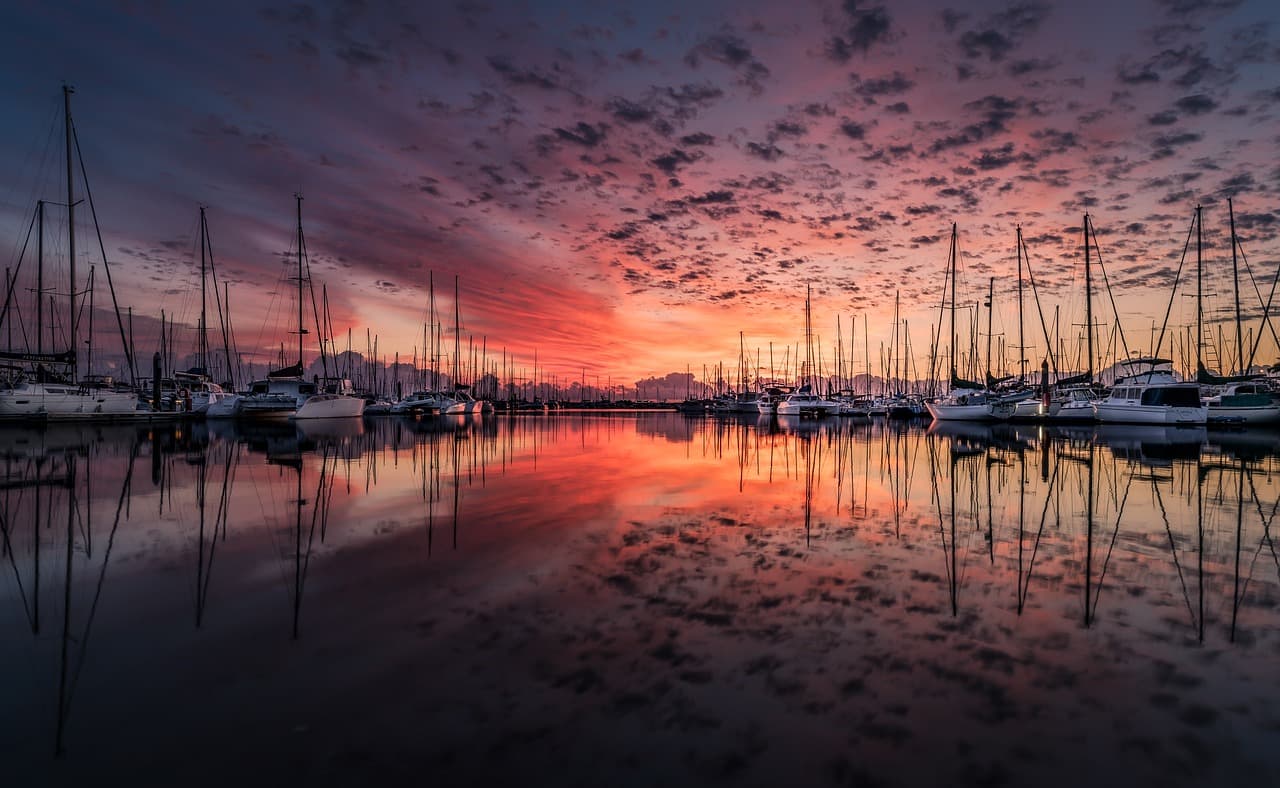Maintaining the rigor and proper transmission of the message is a basic task in any translation, but depending on the industry, its terminology and technicalities, this task can be complicated.
In our professional experience over the years, we have worked with many clients in technical sectors where rigor in the translation of certain words is not only important and basic, but vital, because a bad translation could lead to very serious problems.
In this article, we will delve into the sea of challenges involved in boating translations, and resolve some of the doubts and issues of concern in this sector regarding content translation.
Types of technical documentation on vessels and their problems in translation
Technical translation in the boating industry covers a wide range of texts and documents, from vessel operation and maintenance manuals to detailed marine equipment specifications. In addition to the translation of these materials, cultural adaptation of the documents is also essential to ensure understanding by multicultural teams working in the maritime industry.
Let’s review some of the different types of boating documentation:
- Operating, maintenance and specific equipment manuals
- Plans and diagrams
- Certificates and approvals
- Safety procedures and protocols
- Navigation manuals
- Technical inspection and maintenance reports
It is essential to work with technical translation agencies specialized in the boating industry, who know how to deal with the different and numerous types of technical documentation required on vessels and the dense dictionary of maritime terminology that exists.
Likewise, it is essential to know the meaning of the terms used in the sector and to keep up to date with innovations in the field.
When a translator makes a mistake and confuses a specific term, the resulting translation can cause serious failures in understanding the message. A common misunderstanding, for example, could be the literal translation of “anchor” as “ancla” in Spanish; to avoid confusion it is more accurate to use the term “fondeo” to refer to the process of anchoring a vessel.
Also, the terms bow and stern, or port and starboard, are sometimes confused. The Spanish term “proa” can be translated as “prow”, “bow” or “stem”, meaning the front of the ship; while “popa” in Spanish can be translated as “aft” or “stern”, referring to the rear of the ship. The Spanish terms “babor” and “estribor” are translated as “port” and “starboard” respectively, referring to the left and right sides of the vessel when looking towards the bow from the stern. On the other hand, “port” in English could also refer to “puerto” in Spanish, and it is common to see mistranslations of this term.
As we can see, making mistakes in the translation of technical terms can lead to misunderstandings that compromise safety at sea, or even lead to negative legal implications or additional costs to correct those mistakes, with serious reputational consequences. For this reason, it is essential to invest in specialized translators and quality proofreading to avoid these risks.
Why is it vital to translate this type of documentation correctly?
Consider translation errors in operating manuals, for example, explaining the operation of propulsion systems or electrical systems: this can be highly dangerous for the operation of the vessel and the safety of its navigators. Similarly, maintenance and repair instructions for boating equipment, such as engines, navigation systems or safety equipment, must be correctly understood to ensure that these tasks are carried out safely and effectively. Mistakes made in the translation of these instructions could result in damage to the boat or even accidents during maintenance operations.
Over the years, many companies have chosen to carry out their own translation by relying on their technicians and experts in boating terminology. However, this does not guarantee the correct linguistic adaptation of the materials. For this you need to hire a translation agency specialized in the boating industry, because in addition to being experts in the sector, they are also professional translators.
This is often linked to another very common decision in this industry: to translate technical and marketing documentation into only one language, the most common being English, as it is considered the most international language. However, this choice falls short. It is true that the boating industry market may have its particularities, but if there is one thing common to all markets, it is that buyers prefer to purchase the product in their own language. In other words, we all feel more confident and comfortable shopping in our own language.
This is why it is so necessary to translate all documentation into the different languages of the markets in which you market your products. This is the only way to establish good communication with your potential customers and provide them with accurate information about your products.
Another important point to consider is that of certificates and approvals related to this sector. These are established by national and international organizations. Translations must be rigorous to ensure regulatory compliance is respected in different jurisdictions. One of the major concerns of the industry is that the person in charge of boating translations has the appropriate experience and is aware, among other things, of the international regulations that determine safety at sea.
In the boating industry there are several specific international regulations that govern aspects such as maritime safety, the environment or crew training. These regulations are crucial to ensure safety, efficiency and sustainability in maritime transport. Some of the most important are the International Convention for the Safety of Life at Sea (SOLAS) and the International Convention for the Prevention of Pollution from Ships (MARPOL).
“The concept of norm is fundamental in the conception of translation as an intercultural communicative activity: the translator must be able to adapt to the demands of society. Norms are criteria according to which actual instances of behavior of translators are evaluated” (Toury, 1958).
The International Organization for Standardization (ISO) has developed standards governing the quality of translations. The ISO develops standards whose main role is to improve quality controls and facilitate international relations. ISO 17100 is the internationally recognized standard that governs the translation industry and is the standard for all translations provided by iDISC. This certification certifies that the company complies with the quality requirements established for the translation process and the selection of the linguists responsible for translation and proofreading.
Challenges in intercultural communication
The global nature of the boating industry implies a constant interaction between professionals from different cultures and nationalities. Challenges in cross-cultural communication can arise not only because of language barriers, but also because of differences in on-board protocols or practices. The translation agency must be aware of cultural subtleties and convey them effectively in the translation to avoid impairing good communication in the maritime environment. For example, terms such as “current” can be challenging, since in English it could refer to something that is “up-to-date” or “in force”, as well as an “electrical current” or “sea current”. Also, “sheet” in a boating context refers to the line that controls the sails, not a “bed sheet” or a “sheet of paper”. A translator must be careful to identify the correct meaning according to the context in order to avoid mistranslations.
Cultural misunderstandings in the boating industry can be avoided through translation techniques that take into account cultural, linguistic and contextual differences. It is imperative that translators are familiar with the cultural context of the target audience and use appropriate translation strategies to ensure clear and accurate communication in a global maritime environment.
When emergency situations occur at sea, precise communication is essential. Translations of urgent messages, safety procedures and emergency communications must be flawless.
Innovative technology in the sector and how it is reflected in boating translations
Today it is a fact that technology is transforming the world as we know it. As far as the boating sector is concerned, new technologies have changed the industry to a great extent, from advanced navigation systems to state-of-the-art communication equipment:
- Advanced navigation systems: allow for more precise location and route planning for vessels. This ranges from improved GPS systems to the integration of augmented reality technologies into nautical charts – vital tools for maritime navigation and vessel safety. These GPS devices determine the exact position of a vessel at sea, which not only allows navigators to orient themselves accurately, but also to be geolocated in case of need. Another specific technology used in nautical charts are geographic information systems or GIS, which allow the storage, analysis and visualization of geospatial data, such as water depth, marine obstacles, currents or ports.
- Satellite communication and information technology: a revolution in maritime communication, enabling vessels to communicate constantly with operations centers.
- Intelligent safety systems and artificial intelligence: new nautical technologies have given rise to intelligent monitoring systems that detect potential problems on the vessel before they occur. Using AI, predictive maintenance can be performed by analyzing real-time data to predict failures.
Translators’ in-depth and extensive knowledge of how these technologies work is also a major concern for the industry. The translation agency responsible for boating translations must ensure the accuracy of the technical language associated with these tools and new technologies, so they must be familiar with the technology used. In addition, they must take into account differences in terminology and cartographic conventions between languages and cultures to ensure that the translation is consistent and understandable to navigators from different countries.
iDISC: agency specialized in translations for the boating sector
In conclusion, the boating translation process goes far beyond converting a word from one language to another. It requires a thorough knowledge of technical nautical terminology, a sufficient understanding of the culture of boating and the ability to understand the legal and technical nuances that may arise in maritime contracts and regulations.
For example, when faced with the task of translating a technical manual for a vessel, we assign a team of translators specialized in boating terminology and knowledgeable in the technical aspects of vessels. These experts interpret and adapt the technical content to ensure that it is understandable and applicable in different cultural and linguistic contexts.
In turn, extensive research is carried out to understand the specific technical terms and relevant regulations in multiple jurisdictions. This ensures that the translation is not only accurate, but also legally compliant and safe for application in shipping.
In addition, the translation process of a vessel’s technical manual involves the use of specialized computer-assisted translation tools, which help increase efficiency and terminology consistency, and minimize errors.
Rather than “translation”, we talk about “localization”, which means adapting the documentation, taking into account not only the terminological equivalent in the target language, but also cultural equivalences and different local regulations.
Lastly, we know that there are many challenges to face when it comes to boating translations, but at iDISC Information Technologies we are always by your side to help you overcome them.
If you want to know more about our specialized boating translation services, do not hesitate to contact us or visit our boating translation services page.

.jpg?width=370&height=200&name=Falsas-creencias-de-ciberseguridad%20(1).jpg)

